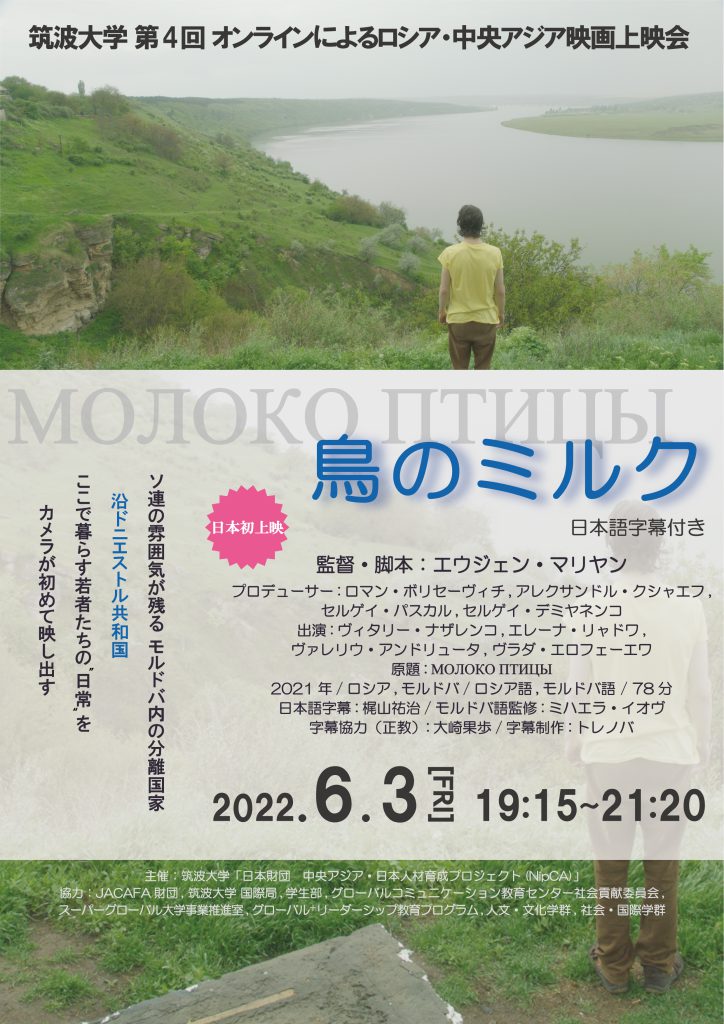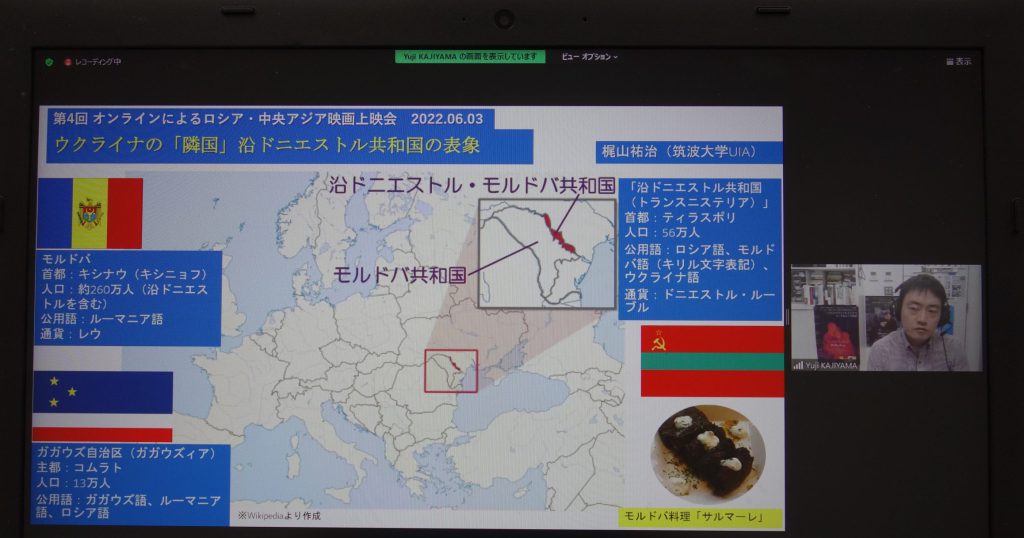The 4th online screening of Russian and Central Asian films took place on June 3, 2022, Friday. The fourth edition featured drama Pigeon’s Milk (2021), directed by Eugen Marian for the first time in the Moldovan Republic of Transnistria (Pridnestrovie), a breakaway state within Moldova.
In the eastern part of Moldova, a former Soviet Union country, often called the poorest country in Europe, there is an unrecognized state called the “Transnistrian Moldovan Republic (Pridnestrovie)” and located across the Dniester River on the border with Ukraine. Although internationally Transnistria is considered to be a part of Moldova, this seceded state under fire because of its large Russian population and the presence of Russian troops. Tensions have increased since the Russian military invasion of Ukraine in February of this year. As a result of increasing interest to recent developments in international arena, up to 200 people registered for the online screening within first three days of advertising. This time, as it was in previous three online screenings, the capacity had exceeded the maximum number of applicants – 500 people.

Before the screening, Dr. Yuji KAJIYAMA, coordinator of the NipCA project, gave a preliminary commentary entitled “Representation of the Transnistrian Moldovan Republic as a “neighbor” of Ukraine.” Through an introduction to the unrecognized states within the former Soviet Union, the relations between these states and Russia and the problems that the neighboring countries have in common were presented. This introduction was followed by a lecture on the specifics of life and history of this “country,” using the example of novels and documentaries that take place in the Moldovan Republic of Transnistria.
The film shown this time was deeply connected to Christian (Orthodox) motifs, some of which were briefly touched on in the preliminary commentary, but the commentary on Pigeon’s Milk was intentionally limited, since many parts of the story are at the heart of the storyline. However, since many participants noted in the post-screening questionnaire that the movie was difficult to understand, we decided to send a PDF of the slides with additional commentary to participants after the screening. More detailed explanations will be published in a future report, so please wait for them.
Although many participants commented that the film was “difficult,” we also received many comments, such as “the images were beautiful” and “the music was good.” We believe it is important to note that some participants expressed sympathy for the ordinary people living in the Transnistria due to the fact that a film can create an idea of the region and its inhabitants though there are limited opportunities for coverage of the people who live in the unrecognized state.
The NipCA project will continue to organize screenings in the future to show the concrete life of different regions.




